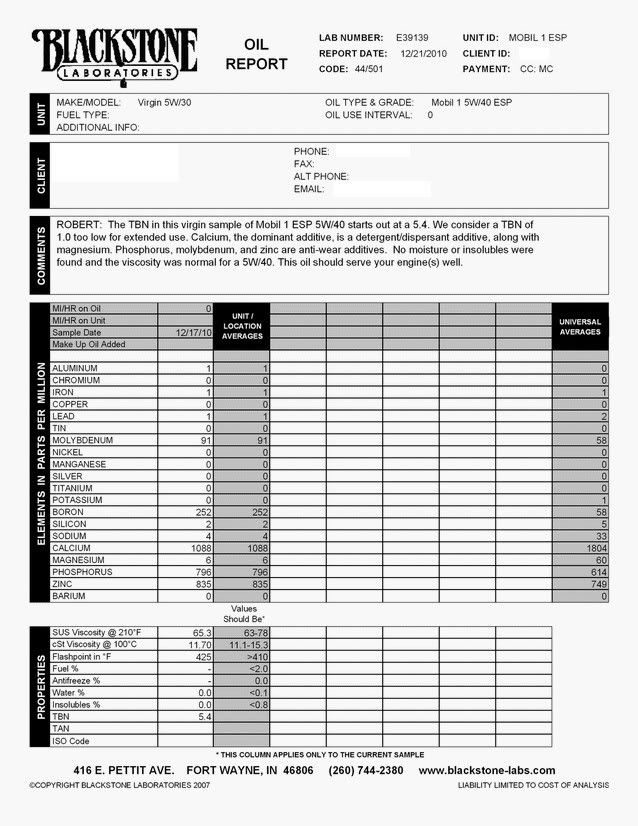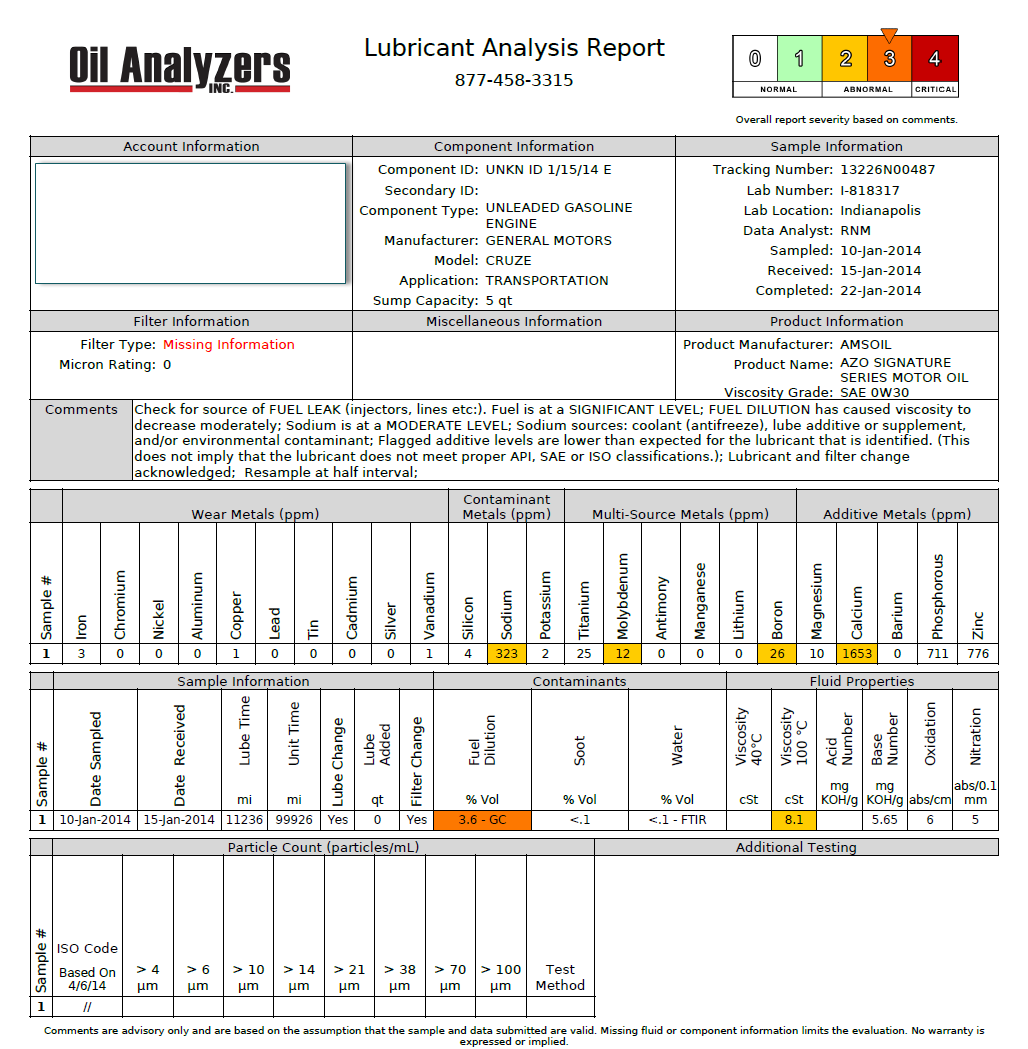This thread contains a tiered oils recommendation list for the Cruze.
Tiered Oils List
Below is a recommended oils list, as of 12/17/13. These recommendations are applicable to 5W-30 weights oils unless otherwise specified. The recommendations in each given tier are listed only in alphabetical order and not in order of performance or recommendation.
Tier 1
- AMSOIL Signature Series 0W-30 or 5W-30
- Joe Gibbs Driven LS30 5W-30
- LiquiMoly Synthoil Longtime 0W-30
- Millers CFS 0W-30 NT Nanodrive Oil - Racing oil
- Motul 300V 5W-30 (2014) - Racing/street oil
- MPT Industries Thirty-K 5W-30
- Pentosin Pentospeed 0W-30 VS
- PurOl Elite Series 5W-30
- Redline 5W-30 Racing oil
- Total Quartz Energy 9000 0W-30
- Xado Atomic 0W-30
Tier 2
- AMSOIL XL (2014)
- Elf Evolution 900 (2014)
- Motul 8100 Eco-nergy (2014)
- Schaeffer's Supreme (2013)
Tier 3
- AMSOIL OE (2014)
- ENEOS Synthetic (2013)
- Formula Shell (2013)
- Kendall GT-1 (2013)
- Motul 8100 X-clean
- Pennzoil Platinum Pure Plus (2014+)
- Super Tech Synthetic (2013)
Tier 4
- Castrol Edge
- Mobil 1 (Mg-based detergents; SAE 970000972950) (2013)
- Mobil 1 Extended Performance
- Mobil 1 Super Synthetic (2013)
- NAPA Synthetic (2013)
- Valvoline SynPower (NOACK 11.6%) (2013)
- Pennzoil Ultra Platinum (NOACK 11.5%) (2014+)
- Quaker State Ultimate Durability (NOACK 12.3%) (2014+)
DISCLAIMER: This list is applicable only to owners of the Chevrolet Cruze, and is applicable only to 5W-30 weight oils unless otherwise specified. Furthermore, the list is designed to allow you to get the most bang from your buck. I do not recommend against any of the oils listed unless specifically noted. For those that I do recommend against, I am not the least bit concerned with how that oil performs in a different vehicle. Since some have complained about AMSOIL being at the top of the list as if to suggest that I have a bias, note that the list is in alphabetical order per tier and that it would be illogical for me to place those oils elsewhere. Lastly, this is not my full time job. Some of the information may be out of date or may not make sense. If in doubt or if you suspect that some of the information is incorrect or would like clarification, let me know. If you disagree with any of the content in this thread, be prepared to discuss your disagreement on Cruze-relevant technical merits.
Use these recommendations at your own risk. I cannot be held liable for anything that happens to you or your vehicle while using any of these oils.
If you want further explanation or justification for why those oils are listed in their respective tiers, you are free to ask. As always, be aware of the forum rules.
Tiered Oils List
Below is a recommended oils list, as of 12/17/13. These recommendations are applicable to 5W-30 weights oils unless otherwise specified. The recommendations in each given tier are listed only in alphabetical order and not in order of performance or recommendation.
Tier 1
- AMSOIL Signature Series 0W-30 or 5W-30
- Joe Gibbs Driven LS30 5W-30
- LiquiMoly Synthoil Longtime 0W-30
- Millers CFS 0W-30 NT Nanodrive Oil - Racing oil
- Motul 300V 5W-30 (2014) - Racing/street oil
- MPT Industries Thirty-K 5W-30
- Pentosin Pentospeed 0W-30 VS
- PurOl Elite Series 5W-30
- Redline 5W-30 Racing oil
- Total Quartz Energy 9000 0W-30
- Xado Atomic 0W-30
Tier 2
- AMSOIL XL (2014)
- Elf Evolution 900 (2014)
- Motul 8100 Eco-nergy (2014)
- Schaeffer's Supreme (2013)
Tier 3
- AMSOIL OE (2014)
- ENEOS Synthetic (2013)
- Formula Shell (2013)
- Kendall GT-1 (2013)
- Motul 8100 X-clean
- Pennzoil Platinum Pure Plus (2014+)
- Super Tech Synthetic (2013)
Tier 4
- Castrol Edge
- Mobil 1 (Mg-based detergents; SAE 970000972950) (2013)
- Mobil 1 Extended Performance
- Mobil 1 Super Synthetic (2013)
- NAPA Synthetic (2013)
- Valvoline SynPower (NOACK 11.6%) (2013)
- Pennzoil Ultra Platinum (NOACK 11.5%) (2014+)
- Quaker State Ultimate Durability (NOACK 12.3%) (2014+)
DISCLAIMER: This list is applicable only to owners of the Chevrolet Cruze, and is applicable only to 5W-30 weight oils unless otherwise specified. Furthermore, the list is designed to allow you to get the most bang from your buck. I do not recommend against any of the oils listed unless specifically noted. For those that I do recommend against, I am not the least bit concerned with how that oil performs in a different vehicle. Since some have complained about AMSOIL being at the top of the list as if to suggest that I have a bias, note that the list is in alphabetical order per tier and that it would be illogical for me to place those oils elsewhere. Lastly, this is not my full time job. Some of the information may be out of date or may not make sense. If in doubt or if you suspect that some of the information is incorrect or would like clarification, let me know. If you disagree with any of the content in this thread, be prepared to discuss your disagreement on Cruze-relevant technical merits.
Use these recommendations at your own risk. I cannot be held liable for anything that happens to you or your vehicle while using any of these oils.
If you want further explanation or justification for why those oils are listed in their respective tiers, you are free to ask. As always, be aware of the forum rules.










